News (All)
News Legal Blog Upcoming Events
News
Deals
CMM Guides Client Through Business Acquisition Unwind
January 12th, 2026

Deals
CMM Navigates High-Stakes Business Divorce on the East End
January 6th, 2026

In the News
Middleton Advocates for Private Helicopter Charter in East Hampton Airport Dispute
December 12th, 2025

In the News
CMM Partner Vincent Costa Named Leadership in Law Award Honoree
November 14th, 2025
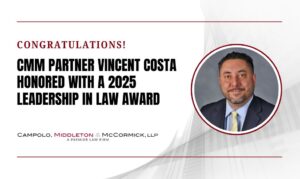
In the News
CMM Closes Commercial Real Estate Acquisition
November 6th, 2025
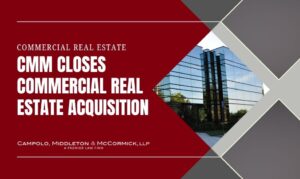
In the News
10 CMM Attorneys Named to the 2025 Super Lawyers® and Rising Stars List!
October 6th, 2025

In the News
Campolo Recognized as a Long Island Business Influencer in Law
September 12th, 2025
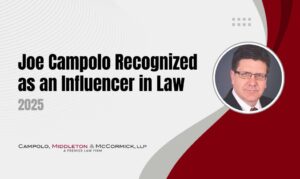
In the News
Christine Malafi Named to Dan’s Power Women of the East End
September 10th, 2025

In the News
Richard A. DeMaio Named CMM Partner
September 2nd, 2025

In the News
Legal History Insights: Summer Edition
August 25th, 2025
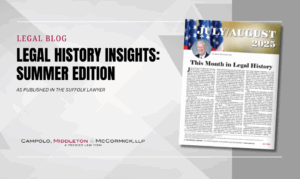
In the News
CMM’s Scott Middleton Featured in The Best Lawyers in America® for the 12th Year in a Row
August 21st, 2025

In the News
CMM’s Christine Malafi Featured in The Best Lawyers in America® for the 9th Consecutive Year
August 21st, 2025

In the News
Campolo Appointed Treasurer of the Board for the Guide Dog Foundation and America’s VetDogs
August 11th, 2025
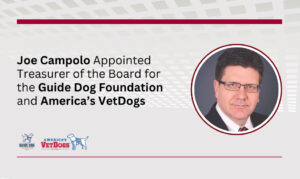
Deals
CMM Closes Prime Commercial Real Estate Sale of NJ Shopping Center
July 25th, 2025

In the News
Christine Malafi Named to Dan’s Power Women of the East End
July 23rd, 2025

In the News
CMM’s David Green Named as President of the Sea Cliff Village Library Board of Trustees
July 15th, 2025

In the News
CMM Closes Commercial Real Estate Transaction for Non-Profit Property
May 5th, 2025
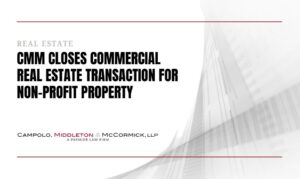
In the News
CMM Closes Sale of Architecture Firm with Latest M&A Deal
April 23rd, 2025

In the News
CMM Secures Win for East End Homeowner Association
April 11th, 2025

In the News
Rassiger quoted in Long Island Business News on Safeguarding Against Tariff Hikes
April 7th, 2025

Legal Blog
Legal Blog
Current Real Estate Market Conditions Offer Opportunities for Retail Tenants
January 5th, 2026

Landlord-Tenant
High Bar for Tenants: Court Sides with Landlord in Harassment Case

Legal Blog
2026 Changes to Minimum Wage and Overtime Exempt Salary Threshold
December 8th, 2025
Legal Blog
Why Real Estate Due Diligence is Critical in M&A Transactions
November 19th, 2025

Legal Blog
Protect Your Business from Wage Lawsuits: How Simple Recordkeeping Can Save Your Business
November 11th, 2025

Legal Blog
Rethinking Arbitration Clauses — What Business Owners Need to Know
October 31st, 2025
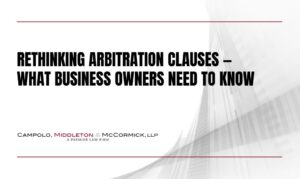
Legal Blog
Employment and Compensation Issues in M&A Transactions
October 24th, 2025

Legal Blog
NY Courts Issue Interim Policy on Judges’ Use of AI
October 17th, 2025
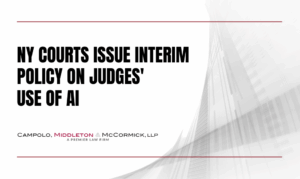
Legal Blog
The Overlooked Obstacle in M&A: Existing Debt and Its Hidden Risks
September 10th, 2025
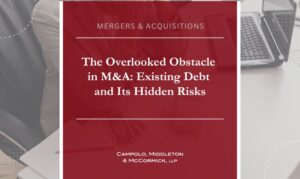
Legal Blog
What Really Keeps M&A Deals on Track? A Closer Look at Governance and Fiduciary Duties
September 10th, 2025

Legal Blog
How Commercial Contracts Can Make or Break Your M&A Deal
September 2nd, 2025

Legal Blog
Consents and Approvals: The First Gate to Closing an M&A Transaction
August 6th, 2025
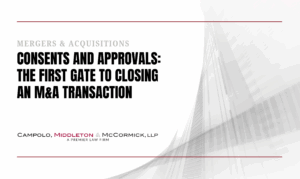
Legal Blog
Ethics and AI: What Lawyers Need to Know
June 26th, 2025

Legal Blog
Annual Business Checkup: Partnership Agreements
April 16th, 2025

Legal Blog
Annual Business Checkup: Operating Agreements
March 18th, 2025
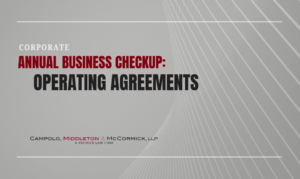
Legal Blog
Annual Business Checkup: Shareholder Agreements
March 3rd, 2025

Legal Blog
Annual Business Checkup: Preventing a Costly Business Divorce
January 31st, 2025
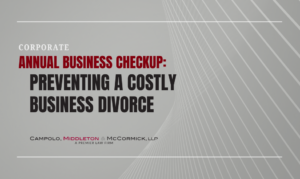
Legal Blog
Understanding the New Telemarketing Consent Rule: Key Changes for Sellers & Marketers
January 27th, 2025
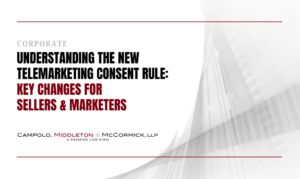
Legal Blog
2025 Changes to Minimum Wage and Overtime Exempt Salary Threshold
December 31st, 2024
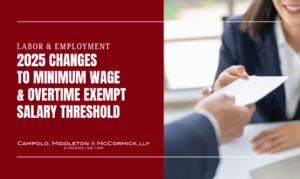
Legal Blog
New York LLC Transparency Act Goes into Effect This Month
December 4th, 2024
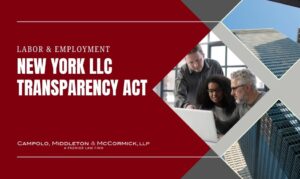
Upcoming Events
January 16, 2026
Campolo Moderates HIA-LI Annual Meeting & Legislative Program
Explore Our Library
January 16, 2026
Campolo Moderates HIA-LI Annual Meeting & Legislative Program
View our archives: News, Legal Blog, Negotiation Blog, Event Photos, Business Unusual, Long Island News Radio, CMM Live, Spotlights